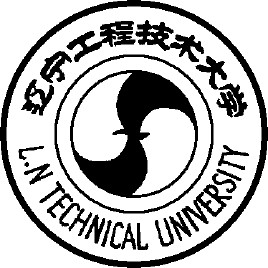Civil engineering is a professional engineering discipline
that deals with the design, construction, and maintenance of the physical and
naturally built environment, including works like roads, bridges, canals, dams,
and buildings. Civil engineering is traditionally broken into a number of
sub-disciplines. It is the second-oldest engineering discipline after military
engineering, and it is defined to distinguish non-military engineering from
military engineering. Civil engineering takes place in the public sector from
municipal through to national governments, and in the private sector from
individual homeowners through to international companies.
Because civil engineering is a wide-ranging profession, including
several specialized sub-disciplines, its history is linked to knowledge of
structures, materials science, geography, geology, soils, hydrology,
environment, mechanics and other fields.
Civil engineers typically possess
an academic degree in civil engineering. The length of study is three to five
years, and the completed degree is designated as a bachelor of engineering, or
a bachelor of science in engineering. The curriculum generally includes classes
in physics, mathematics, project management, design and specific topics in
civil engineering. After taking basic courses in most sub-disciplines of civil
engineering, they move onto specialize in one or more sub-disciplines at
advanced levels. While an undergraduate degree (BEng/BSc) normally provides
successful students with industry-accredited qualification, some academic
institutions offer post-graduate degrees (MEng/MSc), which allow students to
further specialize in their particular area of interest.
Training objectives: This program aims to cultivate students who adapt to the development of socialist modernization, achieve overall development in moral, intellectual and physical aspects, and acquire necessary cultural knowledge of humanities, social science and natural sciences as well as expertise in civil engineering. Through basis trainings from engineers, this program cultivates applied and skilled talents who are capable of technology and management for housing construction and other class civil engineering, obtain solid basic theoretical knowledge, extensive expertise, strong problem analysis capabilities, engineering practice and innovative ability, as well as face the future and first-line engineering.
Main courses: Theoretical Mechanics, Mechanics of Materials, Structural Mechanics, Soil Mechanics, Civil Engineering Materials, Introduction to Civil Engineering, Engineering Geology, Descriptive Geometry and Engineering Drawing, Engineering Surveying, Construction Laws and Regulations, Loading and Structural Design Methods, Design Principle of Concrete Structures, Design Principle of Steel Structure, Basic Engineering, Civil Engineering Construction, Building Architecture, High-rise Building Structure Design, Engineering Seismic Design, High-rise Building Construction, Construction Organization and Construction Project Management, and Engineering Technology Analysis and Cost Estimation, etc.
After graduation, the graduant can chose to pursue masters degree in any related course to further enhance their chances of getting a good career. Even without pursuing a masters degree, there are so many jobs opportunitie that a graduate can apply for. Some of them are; transportation engineer, civil project engineer, traffic engineer, project management engineer and so many others.
Non-Chinese citizens with a valid passport.
Be in good health condition and above the age of 18.
With reliable financial support and custody.
The applicant should be less than 35 years old
High school or equivalent level
Major in undergraduate specialty after pass the HSK
1. Application Form
Please upload your finished application form here.
2. Certificate of HSK
Certificate of HSK (Chinese Proficiency Test)
3. Health certificate
Photocopy of notarized foreigner physical examination record (for durations of study over 6 months)
4. Photocopy of valid passport
With name, passport number & expiration date, and photo included
5. Passport photo
A recent passport-sized photo of the applicant
6. High school academic transcript
7. High school graduate certificate
Graduation certificate in languages other
than Chinese or English should be translated into Chinese or English and
be certified by notarization.
Answer: ACASC
charges a service fee of 50$ for using its online application portal.
Applying through ACASC into Chinese universities attracts a service fee
of $50.
Answer: Yes.
ACASC gives the applicants, the chance to directly apply to their
desired universities through our online application portal. We have
synchronized our system to create a simple platform that connects
universities and colleges in China to international students all around
the world.
Answer: To
track the application status, please log in your ACASC personal
account. Whenever there’s an update, you will be informed on your
application status through ACASC system within a day as soon as we
receive university’s notification. You will simultaneously receive ACASC
auto-email about the application status. To directly inquire about your
application status, feel free to send us an email to admission@acasc.cn and our team will keep you updated.
Answer: When
an application is pending a decision it means that your school has
received it and no admissions decision has been made yet. The admissions
office may have reviewed your application package or may not have.
The
main cause of a pending application is usually incomplete application
documents. As a result you will be requested by the school’s admission
office to re-check and modify all submitted application documents or
perhaps even add extra documents and then re-submit them.
To
avoid further delays, carefully read the university’s comments, modify
your application form on ACASC, and re-upload the required application
documents. You can contact ACASC on admission@acasc.cn for any help with regards to your pending application
Processing
time varies for different applications. For example to process a degree
program application requires more time than a Chinese language
application. Confirmation for Chinese language application by the
admission office usually takes 2 to 4 weeks. However, time for degree
programs application differs. For example fall semester application
processing is after March, and it takes a period of 1 to 2 months. This
also depends on your qualification and the number of applicants.















